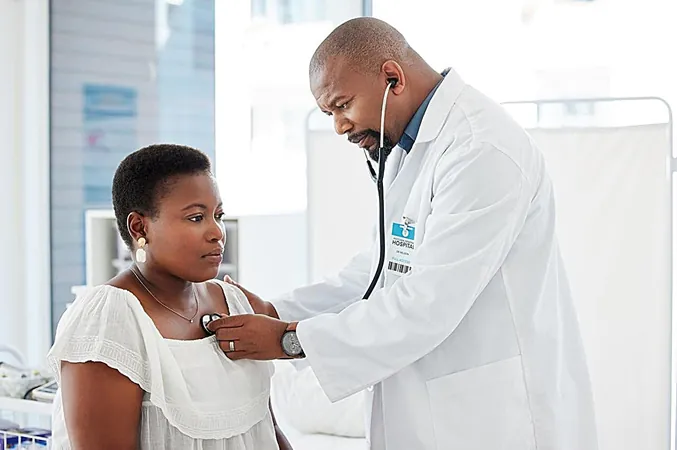
Thailand Raises Alarm as U.S. Reports Severe Avian Influenza Case
2024-12-21
Author: John Tan
Emergency Protocols Activated
Thailand's health authorities have activated emergency protocols after the alarming confirmation of the first severe case of avian influenza H5N1 in the United States. The Department of Disease Control (DDC), under the Ministry of Public Health, is advising all citizens who have traveled from affected areas to report any symptoms that arise within 14 days of their return.
The Critical Case
On December 18, the U.S. Centers for Disease Control and Prevention (CDC) reported a grave case involving a 65-year-old man from Louisiana, who is currently in intensive care battling serious respiratory issues as a result of the virus. This case marks the 61st documented occurrence of human avian influenza in the U.S., and notably, it is the first traced back to direct contact with domestic poultry in a backyard setting.
Details from Thailand’s Health Officials
Dr. Panumas Yanwateesakul, director general of the DDC, explained that the patient had direct interactions with ill and deceased birds, leading to his infection. Preliminary genetic tests show that the H5N1 strain involved belongs to the D1.1 gene group, which has been prevalent among wild birds and domestic poultry in America.
Risk Assessment and Response
"Avian influenza primarily poses a risk to poultry, as it is primarily a zoonotic disease," Dr. Panumas stated. "Even though there have been some recent cases in mammals such as pigs and cattle, we have not recorded any instances of human-to-human transmission."
A Comprehensive Strategy
In response to this threat, Thailand is enacting comprehensive measures to avert outbreaks of avian influenza. Both the Department of Livestock and the Department of National Parks, Wildlife, and Plant Species are actively surveilling and sharing vital information on the situation.
Thailand's strategy includes conducting joint drills for teams that handle both human and animal health emergencies. Operational manuals have been drafted for healthcare professionals tasked with managing potential cases of avian influenza.
International Surveillance and Public Health Measures
In addition, the International Communicable Disease Control and Quarantine Checkpoint is now implementing rigorous surveillance protocols for international travelers. They are ensuring that the necessary resources and equipment are available for the prevention, control, and treatment of avian influenza cases.
Public Safety and Recommendations
Dr. Panumas reassured the public that Thailand has not seen any new human cases of avian influenza since a reported case in 2006. Nonetheless, he urged travelers returning from affected regions who experience respiratory symptoms—such as fever, cough, conjunctivitis, or trouble breathing—to seek medical help immediately and disclose their travel history.
Public health officials recommend that the public consume only well-cooked poultry products and avoid any contact with sick or deceased birds, pigs, or cattle. Those working closely with animals are advised to wear masks and gloves, and to wash their hands thoroughly after any such interactions. Farmers must immediately report to local authorities if they observe a significant number of sick or dead animals.
Vaccination and Preparedness
Health professionals who engage in direct work with poultry should be vaccinated against influenza. Dr. Panumas emphasized that while these vaccines may not specifically prevent avian influenza, they can significantly reduce the risk of severe influenza complications, help prevent co-infections, and decrease the chance of novel hybrid strains emerging.
Developing Local Vaccine Production
In a move towards self-sufficiency, Thailand has also developed the capacity to produce its own influenza vaccines, thereby reducing reliance on international imports and enhancing national readiness in the face of a potential avian flu pandemic.
Additional Information
For those seeking additional information, the public can reach out to the Department of Disease Control hotline at 1422.




 Brasil (PT)
Brasil (PT)
 Canada (EN)
Canada (EN)
 Chile (ES)
Chile (ES)
 España (ES)
España (ES)
 France (FR)
France (FR)
 Hong Kong (EN)
Hong Kong (EN)
 Italia (IT)
Italia (IT)
 日本 (JA)
日本 (JA)
 Magyarország (HU)
Magyarország (HU)
 Norge (NO)
Norge (NO)
 Polska (PL)
Polska (PL)
 Schweiz (DE)
Schweiz (DE)
 Singapore (EN)
Singapore (EN)
 Sverige (SV)
Sverige (SV)
 Suomi (FI)
Suomi (FI)
 Türkiye (TR)
Türkiye (TR)